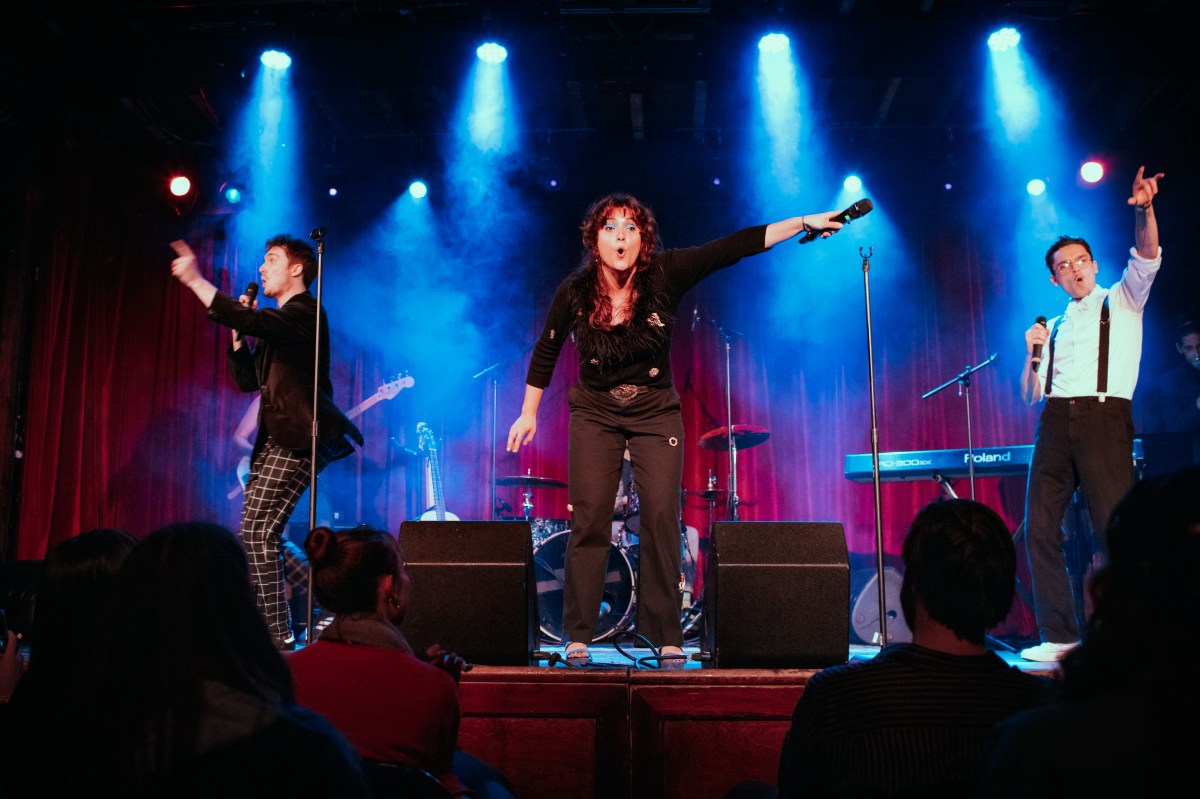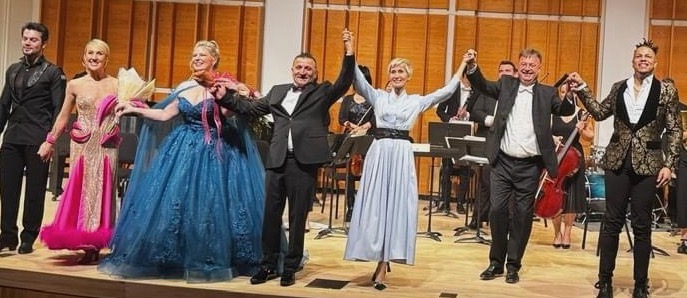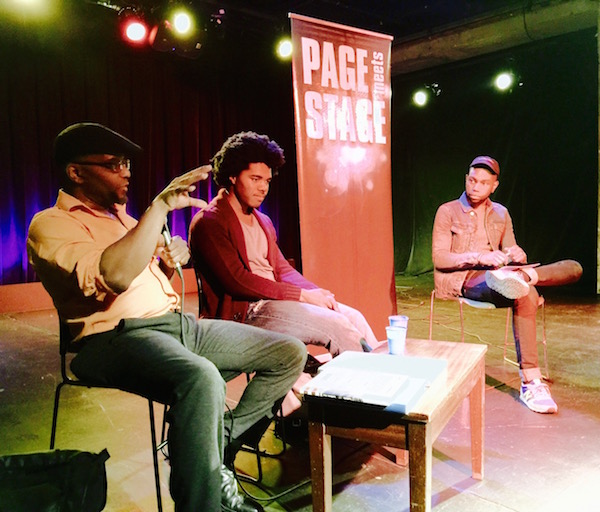
BY PUMA PERL | My first visit to Page Meets Stage took place on a winter’s night just over six years ago. The Bowery Poetry Club was filled to capacity, despite the barriers that often keep people away — an admission charge and no open mike. Onstage sat poets Yusef Komunyakaa, an NYU professor and 1994 Pulitzer Prize for Poetry winner, and Tyehimba Jess, several decades younger, and a former member of Chicago’s Green Mill Slam Team, where Slam began. Komunyakaa, born in 1941, is the author of over a dozen published books, including verse plays, essays, and a volume of jazz poems, “Testimony: A Tribute to Charlie Parker.” Jess had three books to his credit at the time; his latest was entitled “leadbelly: poems.”
Through a shared love of music and words, they connected, trading fours like jazz musicians after midnight, Komunyakaa offering up his short-lined images, and Jess responding in hard-driving lyrics, even breaking out his mouth harp. It’s the rare, sacred night where poetry leaves me breathless. That was one of the few.
Poet and educator Taylor Mali is the Founding Curator of the monthly series, originally called Page vs. Stage. The first show took place November 11, 2005, at the Bowery Poetry Club and paired Mali, a veteran Slam poet and performance coach, with Billy Collins, former Poet Laureate of the United States.
“We pretended that it was much more of a competition,” Mali told me, “but it never has been. From the beginning, we’ve called it an ongoing conversation to see where poetry lives. What makes the format unique is the back-and-forth nature of the reading, which gives the poets the opportunity to ‘answer’ each other.” Following the poem for poem exchange, there is a brief interview conducted by the evening’s host; then the poets close with two poems apiece. There are three members of the Curating Committee in addition to Mali, and a rotation of hosts.
At the March 2016 show, Tyehimba Jess was back for another round. This time, he had jumped from “stage” poet to “page” poet, one of only three who have played both sides of the bill, and was now cast in the role of the elder. His partner, Nkosi Nkululeko, is a 20-year-old Harlem native recently named the NYC Youth Poet Laureate for 2016 (he was also part of the 2014 Urban Word NYC Slam Team and the 2015 Urbana-NYC Team.) The pair played off, and to, one another, each piece enhancing the next.
“Nkosi is an amazingly talented young brother who inspired me into the selections I made throughout the reading,” said Jess, when asked about material preparation. “We were both engaged in the call-and-response that allowed us to answer each other’s poems in ways that unfurled and deepened the meaning of our work. I have been raised around poets, musicians, and performers all of my life. My parents took me to many events,” said Nkosi, who is currently a practicing pianist as well as a performance poet. “One thing I would like the audience to know is my deep appreciation for sharing a stage with Tyehimba Jess. My writing is undergoing a transformation from being in the same spaces and learning from those like him, and many other writers, performers, and thinkers who I deeply admire.”
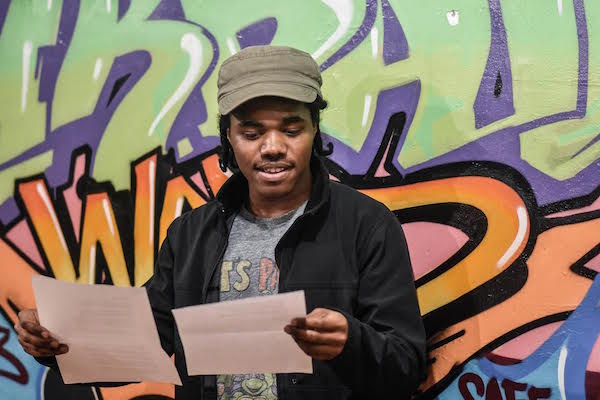
As a poet, performer, and obsessively literal person, I pondered the designations of page and stage. “Tyehimba is a great page poet who reads exceptionally well,” explained Mali. “Although curators predict who brings the most passion to performance, often we have readings where both are equally stagey.”
Poet/actor Steven Willis served as guest host and curator for the event. “The criteria is that the ‘Page’ works primarily in literature, and typically will have published one or more books, while the ‘Stage’ does primarily spoken word. This doesn’t mean that they don’t have published works, but indicates a solid, core spoken word following,” said Willis.
“A page poet says, ‘I don’t need to memorize this because it’s so good on its own,” added Mali. “A stage poet says, ‘This poem is so good it would be shame if I didn’t memorize it.’ ”
“Performance poems can have the same complexity as page poems. The art of memorization brings a new spirit to poetry, and, when memorized well, can bring a totally new meaning to the poem,” Nkosi Nkululeko told me. “I do have some poems published in print and online journals.”
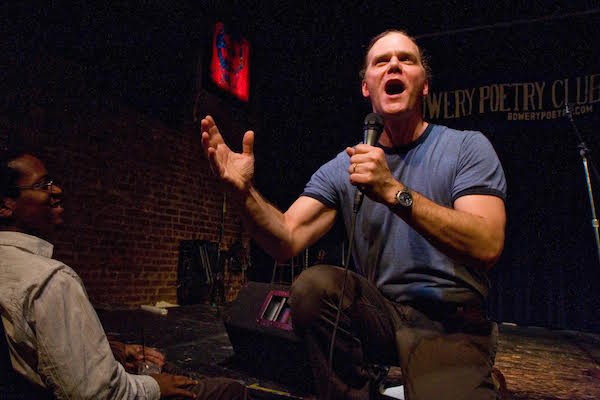
“I learned a lot from watching Marc Smith, Patricia Smith, and other phenomenal poets who move crowds with their voice and memorization of the text that frees their gaze from the page and connects them more kinetically with the audience,” added Jess. “I try to bring the lessons I learned from Slam performance to my readings. I try not to define myself — but I work mostly as a poet with a keen interest in history and music, and the many personal stories found in that nexus.”
Jess’ newest work, “Olio,” weaves sonnet, song, and narrative to examine the lives of mostly unrecorded African American performers directly before and after the Civil War, up to World War I.
Page Meets Stage has been somewhat nomadic since the Bowery Poetry Club closed for remodeling in 2012. In September, they return to their original home.
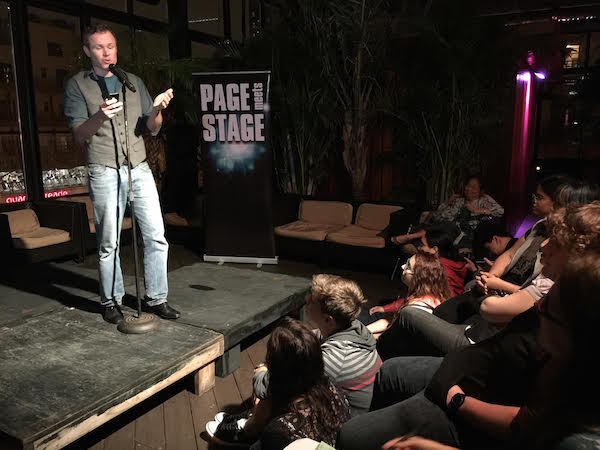
“It’s been a struggle finding the right fit,” said Mali. “We are thrilled about returning to the Bowery Poetry Club. We’ll be there [the second Wednesday of the month, September through November], and then we will reassess.”
Eleven years is long time for a venue to last these days. I am hoping for many more years of surprise and spontaneity, Page Meets Stage-style.
The final “Page Meets Stage” of the spring takes place on Wed., May 11, 7:30pm, at The COW (21-A Clinton St., btw. E. Houston & Stanton Sts). Admission is $12 at the door, $6 if purchased through eventbrite.com. The featured pairing: John Murillo and Caits Meissner. For more info, visit pagemeetsstageseries.wordpress.com. Tyehimba Jess’ latest work, “Olio,” is available from online booksellers, bookstores, and directly from the publisher, Wave Books. Visit wavepoetry.com/products/olio.





